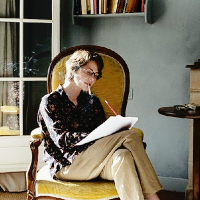Ryan Britt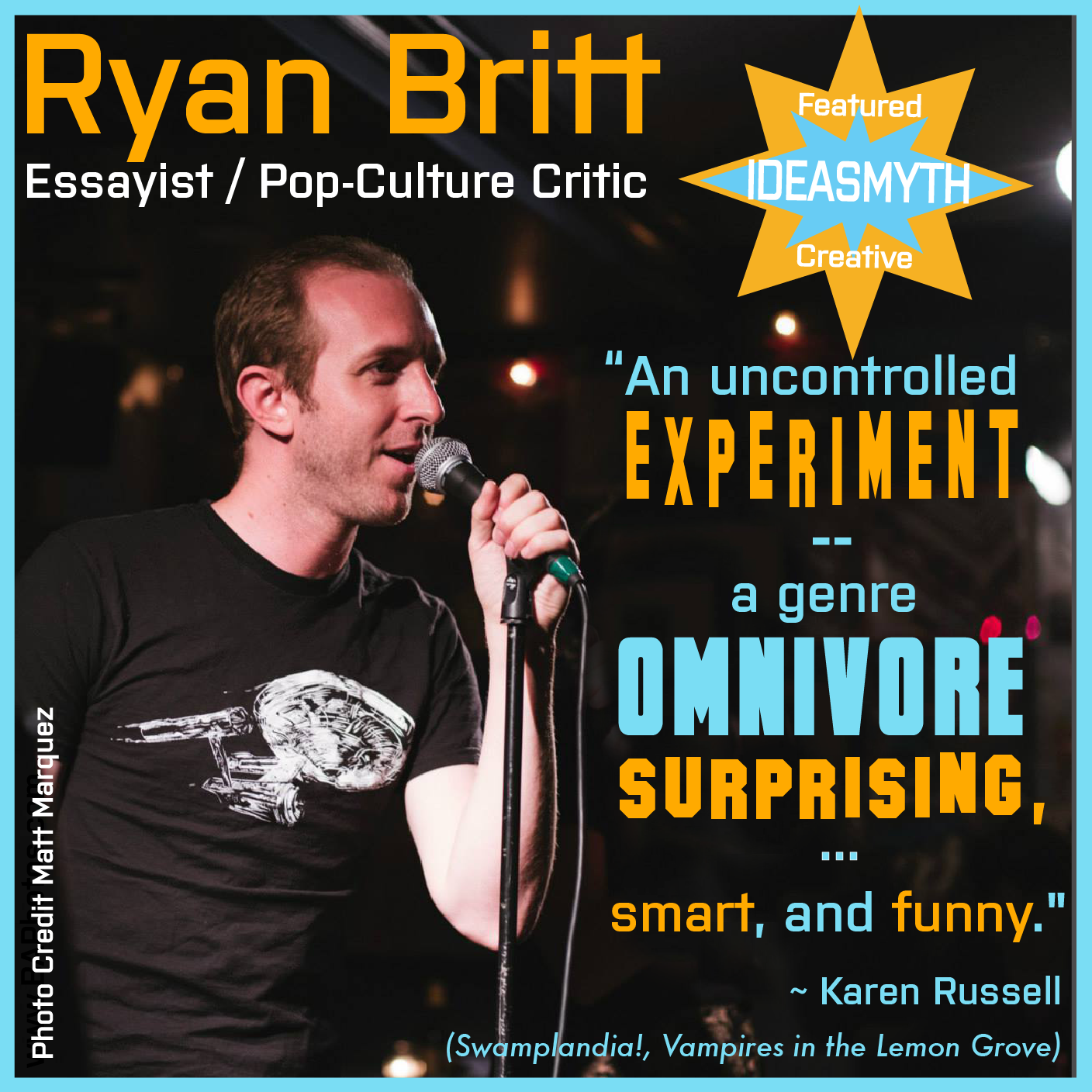 is the Halley’s comet of pop culture critics: a rare bright light not to be missed! His sci-fi criticism embraces a Sedaris-like sense of the absurd that has landed his byline in publications from The New York Times to VICE—and gotten him a book deal (Luke Skywalker Can’t Read: And Other Geeky Truths)—especially impressive for a book industry that typically thumbs its nose to essay collections. This week, he shares some of the geographic and emotional journeys and odd jobs (including “waitress” and “cat-sitter”) that happened along the way to identifying himself as a “Pop-Culture Sci-Fi Guru” (as the back of his book will tell you). We wish we had our own personal TARDIS time machine so we could re-live first encountering his writing multiple times.
is the Halley’s comet of pop culture critics: a rare bright light not to be missed! His sci-fi criticism embraces a Sedaris-like sense of the absurd that has landed his byline in publications from The New York Times to VICE—and gotten him a book deal (Luke Skywalker Can’t Read: And Other Geeky Truths)—especially impressive for a book industry that typically thumbs its nose to essay collections. This week, he shares some of the geographic and emotional journeys and odd jobs (including “waitress” and “cat-sitter”) that happened along the way to identifying himself as a “Pop-Culture Sci-Fi Guru” (as the back of his book will tell you). We wish we had our own personal TARDIS time machine so we could re-live first encountering his writing multiple times.
~The Ideasmyth Team
***
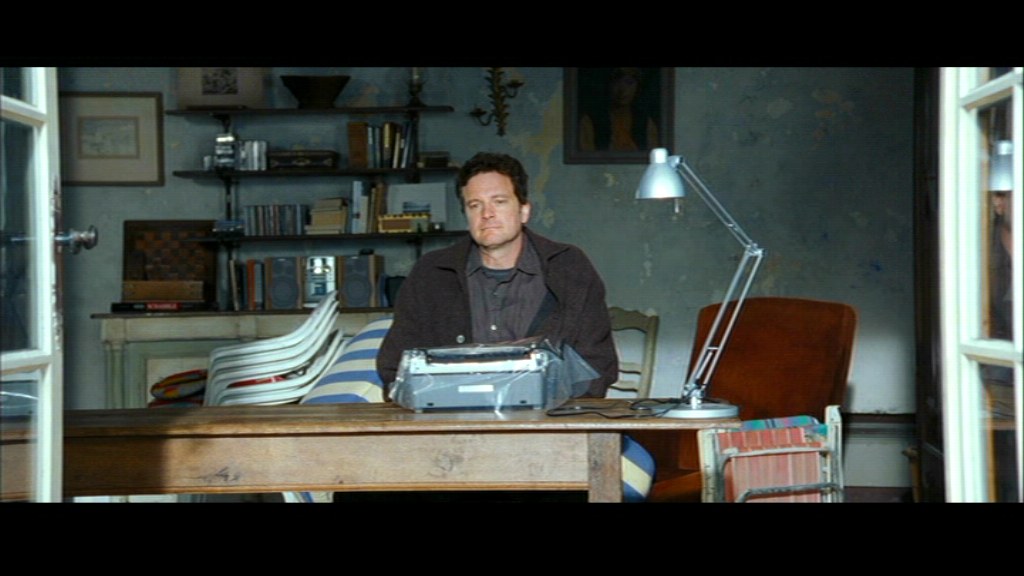
Colin Firth stares out into space in Love, Actually; Source: fanpop.com
Staring out into space wondering what you’re supposed to be writing next is a familiar scene either to real writers or fake writers in movies. In the latter, the space the writer is staring into is often populated by beautiful trees or nature. In Love, Actually, Colin Firth’s character heads out to a little tiny cottage in the English countryside to get his novel done. This exact same thing ends up happening in the movie Swimming Pool; Charlotte Rampling is sent by her publisher out to the French countryside to finish her novel. Neither of these people gets a whole lot of writing done. Partly, this lack of productivity is because movies in which writers were productive and happy would be boring, but also because these kinds of films accidentally telegraph out an important truth: the ideal circumstances for writing sometimes aren’t all that ideal. Or, to put it another way, the search for the perfect place to write might not be all that helpful.

Virginia Woolf, who came up with the “room of one’s own” idea; Source: amazon.com
I end up sounding like a bit of an iconoclast when I say stuff like this, but, I’m not entirely convinced I don’t write my best, most true-to-myself work when it’s super inconvenient and I’m perhaps not in the most ideal of circumstances. This isn’t something that I’ve been able to duplicate, it’s just that I do know the whole thing with the “room of one’s own,” might not always be the destination a writer needs to get their best stuff done. Sometimes working in less than ideal circumstances can be better.
When I was finishing the manuscript for this first book of mine (Luke Skywalker Can’t Read) I was in the middle of a vacation where I was supposed to be enjoying myself. The thing was, vacation can be stressful if you’re also supposed to be turning in a book while you’re seeing the sights. What I mean to say is this: in a sense, writers are never on vacation, at least not really. Residencies where people go to secluded artist colonies and look at deer running around outside their window aren’t vacations. That’s a kind of work. And unlike in Love, Actually or Swimming Pool, you might not have a love affair or get involved in a murder-plot while you’re at a writing colony. All that you really should get done while you’re there is some writing.
The reason why this is hard to deal with is because it’s not glamorous. The best writing happens in stolen moments, and in a sense, artist colonies or even MFA programs are extended versions of stolen moments. It’s not entirely natural to want to write and write well. Your mind and body will rebel against this kind of stuff from time to time, which is why you’ll never be on vacation.
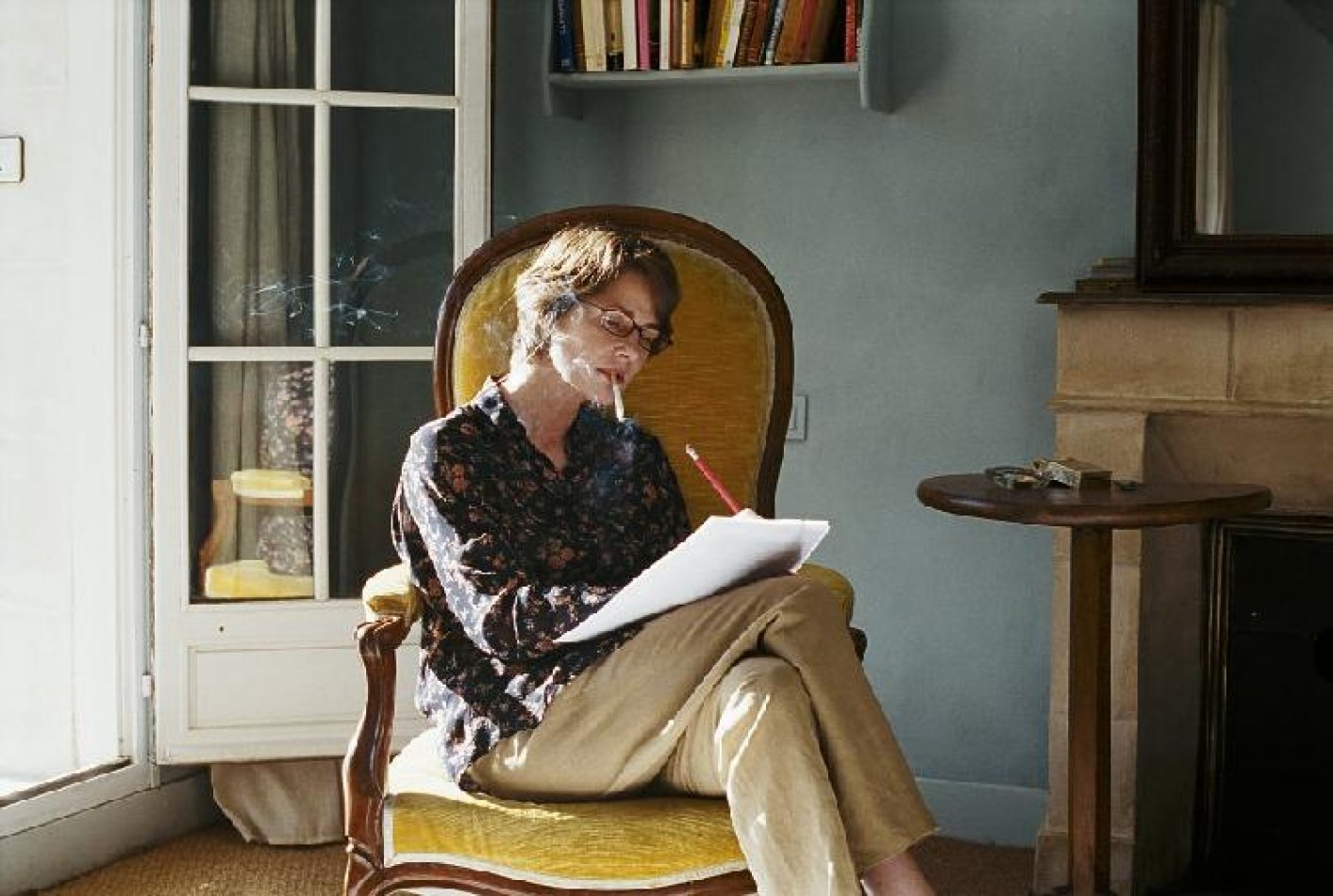
Charlotte Rampling works on her detective novel in Swimming Pool; Source: focusfeatures.com
Because, once you do start making the stolen moments of writing into your daily practice, what you’ll find is that you’ll be very protective of them. It doesn’t have to do with what your job is or where you are in your life at that particular time. Instead, it has to do with arriving somewhere inside yourself that feels safe. The trick is to not try to look for that place too hard.
And know this: no matter how good you feel about the place you’ve found for yourself, you’re never going to get as much writing done as you think you should have or could have. No writer ever has ever once gone to a residency or taken some time just to focus on their stuff and said later, “Yes, I got a lot of good work done, exactly the amount I wanted!” You’ll never say this because you’ll never be totally satisfied.
And that’s because we’re all functional misanthropes, searching for our places, never finding them, always forgetting that our “places” are what we take with us.
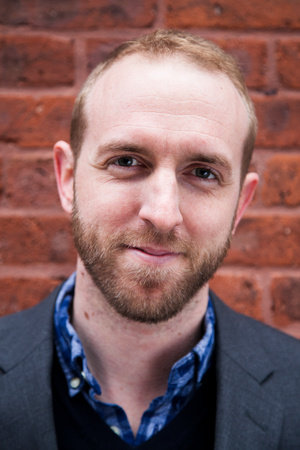 ~~~Ryan Britt’s writing has appeared in The New York Times, VICE, The Awl, The Morning News, Nerve, Omni, Clarkesworld, The MindHut, The Barnes and Noble Book Blog, Electric Literature, Crossed Genres, The Drum, The Literary Hub and elsewhere. He was formerly the staff writer at the Hugo-Award Winning Web Magazine Tor.com, where he remains a contributor.
~~~Ryan Britt’s writing has appeared in The New York Times, VICE, The Awl, The Morning News, Nerve, Omni, Clarkesworld, The MindHut, The Barnes and Noble Book Blog, Electric Literature, Crossed Genres, The Drum, The Literary Hub and elsewhere. He was formerly the staff writer at the Hugo-Award Winning Web Magazine Tor.com, where he remains a contributor.
Ryan has told stories on stage with The Moth, The Liar Show, RISK! and is the co-curator of two live reading series; Lust for Genre and The Hi-Fi Reading Series. He currently teaches writing for Media Bistro, The Sackett Street Writers’ Workshop, Catapult as well as privately.
Ryan’s first book, the essay collection Luke Skywalker Can’t Read and Other Geeky Truths, will be published by Plume (an imprint of Penguin Random House) on November 24th, 2015.

